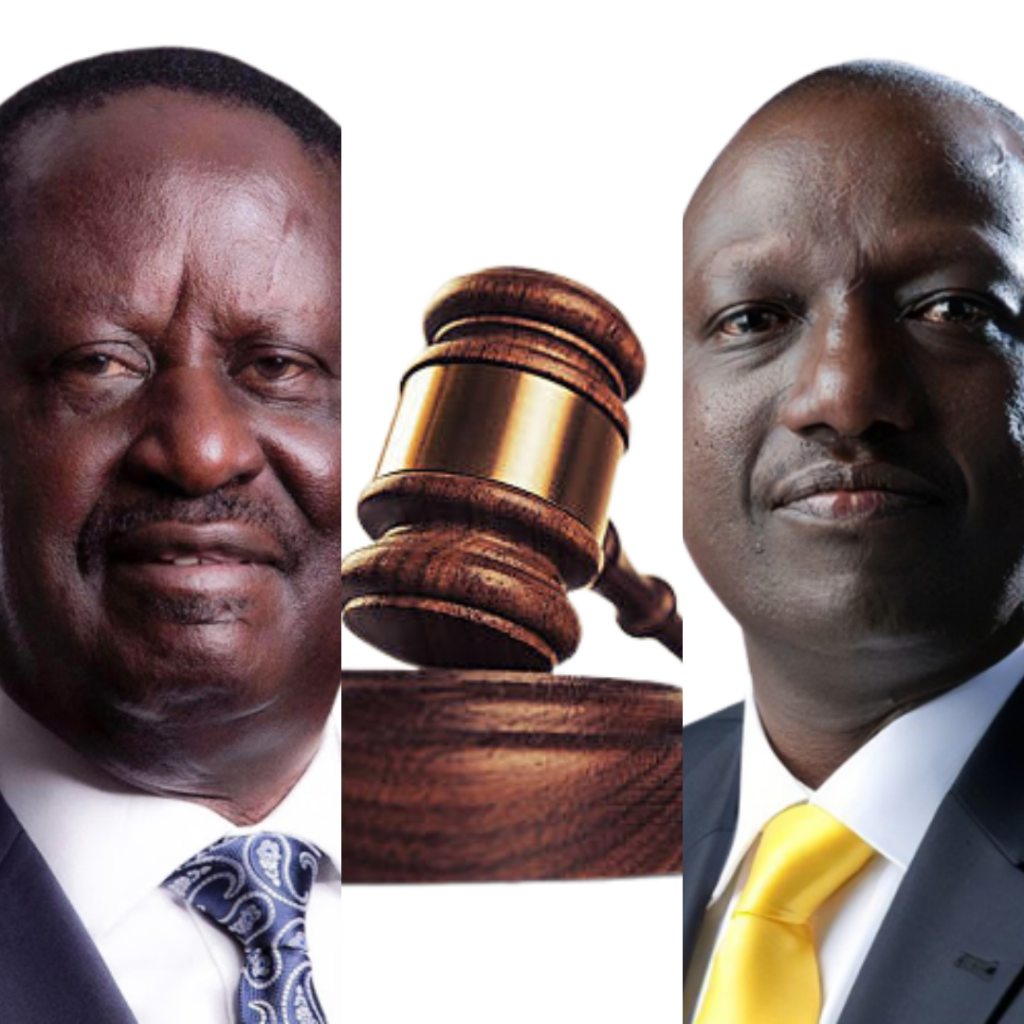
Kenya’s Supreme Court is once again taking centre stage in the nation’s election battle, after defeated presidential candidate Raila Odinga on Monday challenged the credibility of the election results.
Azimio La Umoja One coalition, led by it’s Presidential flagbearer Raila Odinga, described the outcome of the August 9 general elections and its handling by the Independent Electoral and Boundaries Commission (IEBC) as a disregard of the constitution and laws of Kenya.
Odinga rejected the results which showed that the UDA Party candidate William Ruto was declared the winner. He further claimed that the figures announced by IEBC Chairman, Wafula Chebukati are null and void and must be quashed by a court of law. The court has 14 days to make a ruling.
The Supreme Court
The Supreme Court is the highest in the land, created under Kenya’s 2010 constitution “as the final arbiter and interpreter of the constitution”.
Its rulings are final and binding.
The court comprises a president, vice president and five other judges. They are officially appointed by the head of state, although he does not have the power to choose them.
Instead, candidates’ names are submitted to the presidency for approval after an open nomination process and public hearings, some televised, held by the judiciary.
The Supreme Court was established to rule on decisions by appeal courts regarding the law or interpretation of the constitution and is the only court permitted to adjudicate in election disputes.
“The judiciary in Kenya has repeatedly asserted its independence from the executive branch,” the Carnegie Endowment for International Peace said in a July report on the elections.
“The Kenyan court system is one of the most robust in the region and will not bend to political pressure,” Verisk Maplecroft analyst Benjamin Hunter said, adding that the Supreme Court enjoyed “strong credibility”.
2017 vote annulment – In the August 2017 poll, the incumbent Uhuru Kenyatta was declared the winner with 54 percent of the vote against 45 percent for Odinga
Odinga petitioned the Supreme Court, claiming hackers broke into the IEBC database and manipulated the results.
In a shock decision September 1, the court ruled by a majority that the results were “invalid, null and void” and ordered a rerun, delivering a stinging rebuke of the IEBC.
The annulment was a first for Africa.
Although it won praise worldwide as a sign of judicial independence in Kenya, Kenyatta angrily called the judges “crooks” and the ruling led to bruising acrimony and unrest.
The court headed by then chief justice David Maraga cited widespread “irregularities and illegalities” in the counting process and mismanagement by the IEBC.
A rematch was held on October 26 but Odinga boycotted the race, saying the election body had failed to make necessary reforms, and Kenyatta went on to win with 98 percent of the vote.
In 2013, the court rejected another poll challenge by Odinga, upholding Kenyatta’s first-term election victory.
In an extraordinary turn of events, Odinga, a veteran opposition leader, later joined hands with Kenyatta and was backed by the ruling party in this year’s election.
Building Bridges Initiative – In a major ruling in March 2022, the court — under Chief Justice Martha Koome — determined that a controversial bid to change the constitution was illegal, dealing a blow to Kenyatta who had spearheaded the proposals
Known as the Building Bridges Initiative (BBI), the changes would have expanded the executive and increased the number of parliamentary seats, in the biggest revision of Kenya’s political system since the adoption of the constitution in 2010.
After a near two-year legal wrangle, the judges deemed the BBI “unconstitutional”, saying the president could not initiate such amendments, but left open the possibility for them to be submitted again by parliament or other means.
First female chief justice – Koome, 62, was appointed chief justice in May 2021, the first woman to occupy the post
The staunch women’s rights campaigner had been seen as an unlikely candidate in a list of 10, including the lawyer who represented Kenyatta in the 2017 election case.
Koome made a name for herself during the autocratic regime of late president Daniel arap Moi when she represented political prisoners, including Odinga.
The University of London-trained Koome joined the judiciary in 2003 after practising as a lawyer for over a decade. In eight years, she rose to the Court of Appeal following stints at the environmental and family division courts.
During her vetting, Koome promised to rid the judiciary of corruption and safeguard its independence.
“I am a judge who looks at society and Kenyans will feel safe with me,” she said.





